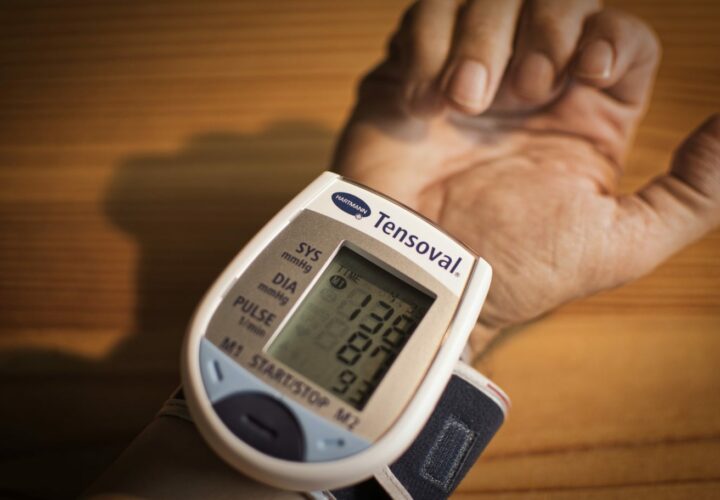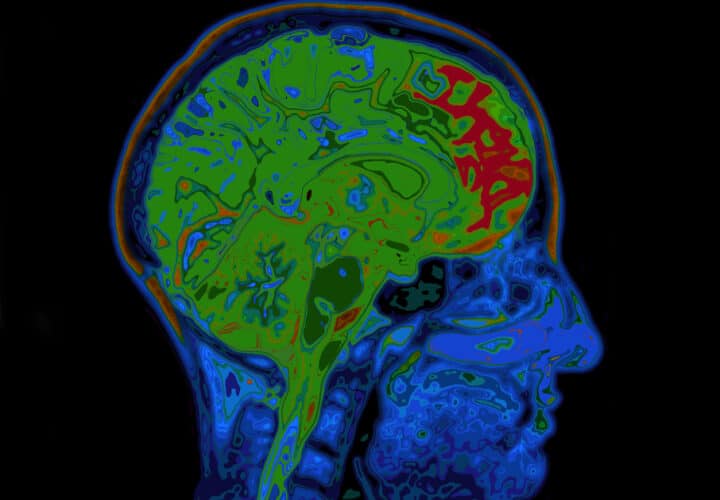High blood pressure is linked to a lot of common health problems, most notably stroke and heart disease. Scientists have also established a link between high blood pressure and increased dementia risk. But a new study finds that an uptick in blood pressure — even as early as your 30s — could lead to a higher dementia risk later on.
The study, published in The Lancet Neurology, found that changes in blood pressure even as young as the age of 36 predicted poorer brain health later on in life.
Analyzing Dementia Risk Over a Lifetime
The study used data from Insight 46, part of the MRC National Survey of Health and Development. The project tracks 500 birth cohort participants throughout their lifetime to identify dementia risks and signs as they get older.
In the latest study, researchers examined 502 participants who were all born in the same week of 1946. The participants didn’t have dementia when the study began.
The researchers tracked the participants’ blood pressure levels at different ages throughout their life: 36, 43, 53, 60–64 and 69 years old. Most of the participants also underwent brain scans, which checked for amyloid proteins in the brain, a sign of Alzheimer’s. The brain scans also examined the size of the brain and blood vessel health.
Hypertension, Brain Architecture and Size
The researchers found that high blood pressure didn’t drive an increase in amyloid protein in the brain. Instead, high blood pressure at age 53, as well as rises in blood pressure between 43 and 53, were linked to increased blood vessel damage around age 70.
It was the uptick in blood pressure at younger ages — between ages 36 and 43 — that showed a connection to smaller brain volume. Smaller brain size can be a sign of poor brain health.
In short, high blood pressure at a younger age may affect your overall brain health, but may not necessarily drive the build-up of amyloid or tau proteins.
“We now know that damage caused by high blood pressure is unlikely to be driven through the hallmark Alzheimer’s protein amyloid, but through changes in blood vessels and the brain’s architecture,” said Jonathon Schott at UCL Queen Square Institute of Neurology in the press release.
Dr. Carol Routledge, director of research at Alzheimer’s Research UK, added in the press release that, “the findings shed new light on the mechanism by which hypertension could damage the brain. As the participants in this study are identical ages and have been followed throughout life, the researchers can gain robust insights into the factors influencing their brain health.”
High Blood Pressure and Dementia
Past research has established a link between high blood pressure and dementia, even though scientists still aren’t sure why or how. One study found that blood pressure that was even just a little bit higher than normal (a systolic blood pressure of 130 mmHg) could increase the risk of dementia.
Another study found that women who experienced high blood pressure in their 40s were 73 percent more likely to develop dementia later in life than those who didn’t have high blood pressure.
Why does this happen? More research is needed, but one theory is that the increased pressure affects blood systems in the brain. This can impair blood flow and neuron activity.
The latest study, meanwhile, is one step closer in identifying how high blood pressure could lead to worse brain health, and what this might mean for people hoping to lower their dementia risk.
“The Insight 46 study has allowed us to reveal more about the complex relationship between blood pressure and brain health,” Schott said in the press release. “The findings suggest that blood pressure even in our 30s could have a knock-on effect on brain health four decades later.”
Learn more about reducing high blood pressure and stroke factors here.





